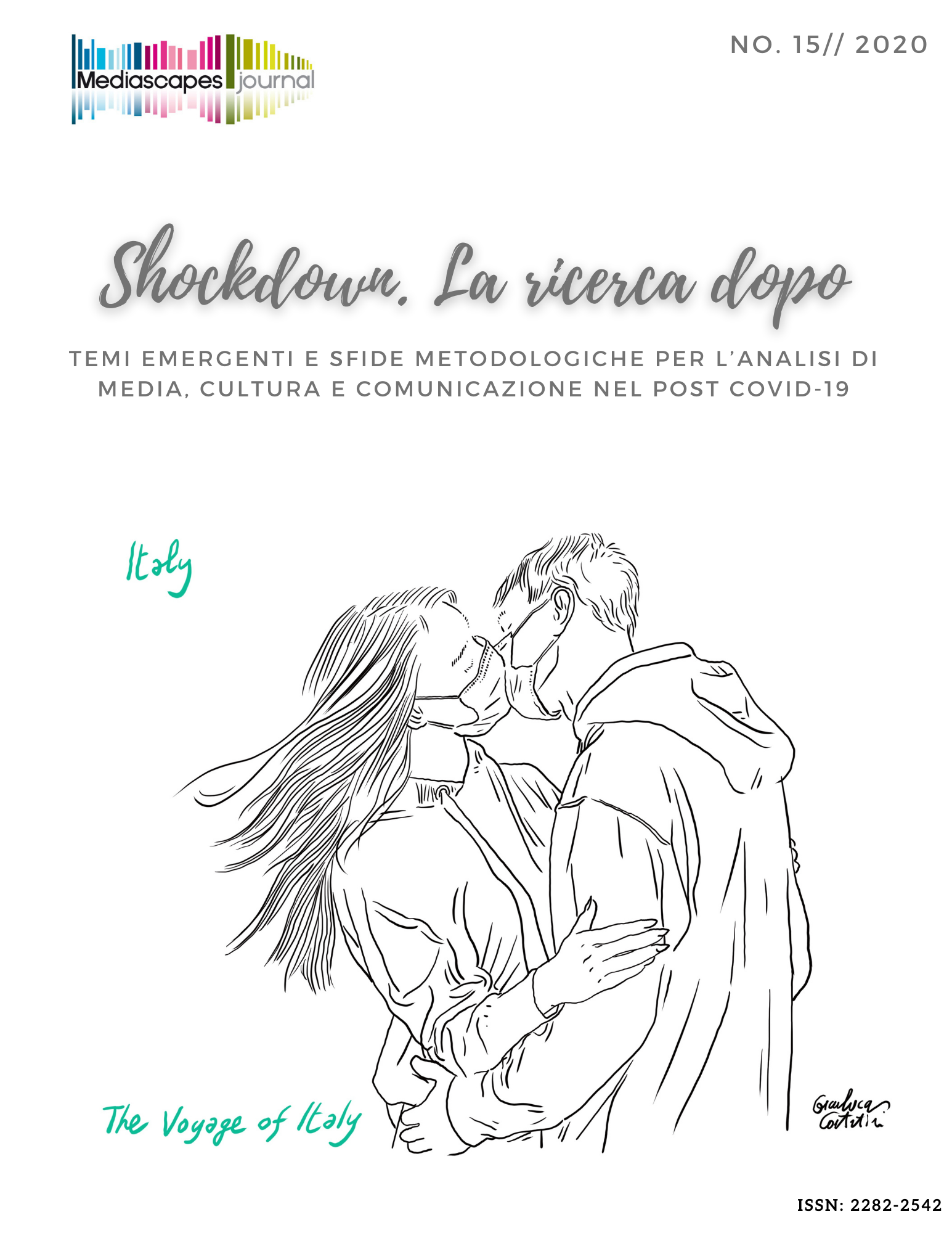Fake news, Covid-19 e Infodemia: un esempio di ricerca sociale in real-time su Twitter
Keywords:
fake news, Covid 19, infodemia, digital methods, TwitterAbstract
The spread of Covid-19 virus all over the world has been accompanied by the online circulation of a relevant number of fake news. In this regard, the World Health Organization coined the term infodemic, that is, “an epidemic of misinformation - spreading rapidly through social media platforms and other outlets that poses a serious problem for public health” (Zarocostas, 2020). In this short essay, we explore the processes of circulation of fake news within the Italian Twittersphere during Covid-19 emergency. Drawing upon the analysis of 7,237,581 tweets, based on a digital methods approach, we conclude that it is not possible to observe a real infodemic within the Italian Twittersphere. Only 1,44% of the tweets collected are fake news, plus they circulate only in very specific periods and within closed communities. Furthermore, the 61% of fake news deals with the topic of immigration: false information that put the blame of coronavirus diffusion on migrants do not represent, per se, a threat to public health; instead, they are part of the strategy adopted by Italian right-wing populist movements to get online visibility for political purposes. In the conclusion, we also propose a reflection on the characteristics and potentials of real-time social research, arguing that it can give a fruitful and authoritative contribution to enhancing the online public debate on contemporary social issues.


